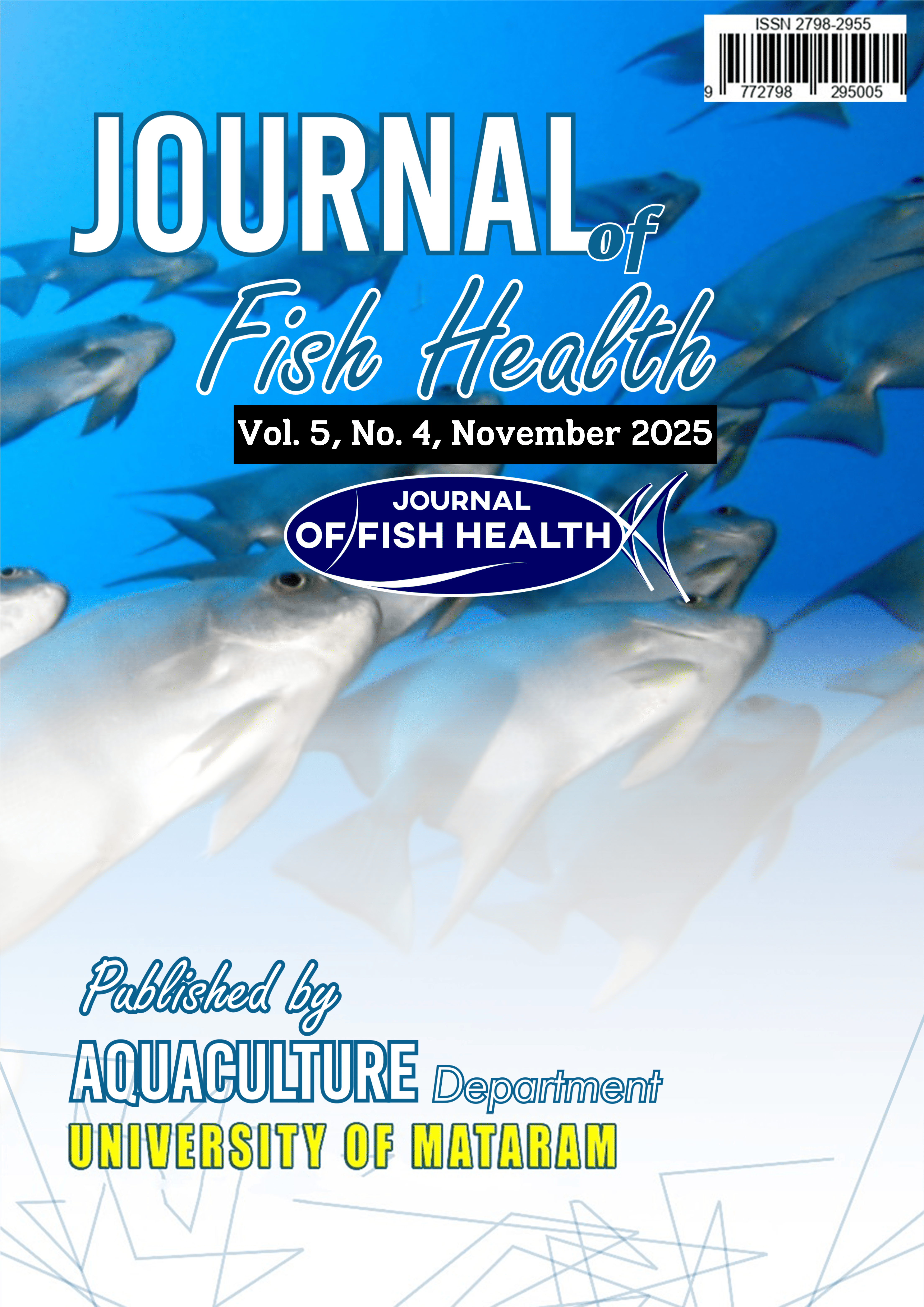Climate-Resilient Biofloc Aquaculture: Energy Efficiency, System Robustness, and Operational Adaptations under Changing Environmental Conditions (2020–2025)
DOI:
https://doi.org/10.29303/jfh.v5i4.8259Kata Kunci:
BFT, Energy Efficiency, OTE, Climate Change, SustainabilityAbstrak
Climate change poses a significant threat to the sustainability of global aquaculture, including biofloc-based aquaculture systems (BFT). While BFT improves nutrient use efficiency and reduces water consumption, energy efficiency remains a key challenge, especially in terms of energy intensity and oxygen transfer (OTE/SOTE). This study conducts a systematic literature review (SLR) using the PRISMA 2020 method, focusing on energy efficiency in tilapia cultivation with BFT and adaptation strategies to climate variability. Key findings emphasize the importance of aeration, design optimization, and C/N management in minimizing energy consumption without compromising production. Additionally, integrating technologies like IoT/AI for adaptive DO control shows great potential in reducing energy intensity. This research contributes a systematic framework that links energy metrics with aeration design and operational adaptation strategies, offering guidance for developing more efficient and climate-resilient BFT systems. The study also recommends implementing renewable energy and smart water quality monitoring technologies to enhance aquaculture sustainability.
Unduhan
Diterbitkan
Terbitan
Bagian
Lisensi
1. The copyright of this journal belongs to the Editorial Board, based on the author's consent, while the moral rights of the publication belong to the author(s).
2. The formal legal aspect of journal accessibility refers to the same Creative Common Attribution + Noncommercial + ShareAlike (CC BY-NC-SA), implying that publication can be used for non-commercial purposes in its original form.
3. Every publication (printed/electronic) is open access for educational, research and library purposes. In addition to the objectives stated above, the editorial board is not responsible for copyright infringement















